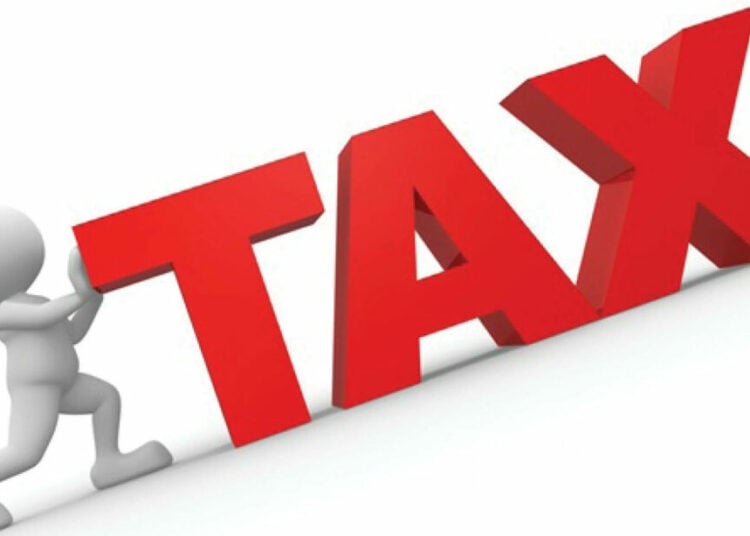Taxation is one of the most fundamental obligations of citizenship, as it represents the contribution of individuals and businesses to the collective well-being of society. By paying taxes, citizens not only fulfill a civic duty but also support the provision of essential services such as healthcare, education, security, and infrastructure.
Taxation strengthens the social contract between the government and the people, ensuring that resources are pooled together for the greater good. Compliance with tax laws also promotes accountability and transparency, since governments are expected to justify how taxpayers’ money is spent.
Beyond being a civic duty, taxation is the primary means of revenue mobilization for governments to finance projects and meet fiscal responsibilities. It provides the funding needed for capital investments in roads, power, water supply, and other development initiatives that stimulate economic growth and improve quality of life.
Moreover, effective tax collection helps reduce dependence on borrowing and foreign aid, thereby strengthening national sovereignty and financial stability. When citizens willingly pay taxes and governments prudently manage the revenues, it creates a sustainable cycle of development and fosters trust in public institutions.
And so, what is tax?
There is no one-size-fits-all definition of tax. However, one common denominator in the various interpretations of the subject of tax is that it is a levy or a charge imposed by government on persons, entities, transactions or property to raise revenue for public use. That is according to Blacks Law lDictionary. Underscoring the importance of tax to the continuous functioning of government and society, Irri and Udoh (2024) quoted a former United States president, Benjamin Franklin, as having said in 1789 that “Nothing is certain except death and taxes.”
According to the National Tax Policy, tax is every compulsory payment to government imposed by law without direct benefit or return of value or a service, whether it is called a tax or not. One key takeaway on the issue of tax is that it is paid without expectation of any direct benefit to the person paying it.
The different types of taxes
Companies Income Tax (CIT)
Companies Income Tax (CIT) is levied on the profits of companies in Nigeria and it is regulated by the Companies Income Tax Act (CITA), which is now consolidated in the Nigeria Tax Act 2025. Foreign companies doing business in Nigeria are also subject to CIT. This tax type is paid by limited liability companies operating in both private and public sectors. According to Irri and Udoh, individuals and entities registered as business names are not liable to CIT.
While small companies (those with gross turnover N50m) are exempt from payment of CIT, medium and large companies are charged CIT at the rate of 20k for every Naira made as profit and 30k for every Naira respectively. CIT is one of the non-oil taxes assessed and collected by the Federal Inland Revenue Service (FIRS), which is transitioning to the Nigeria Revenue Service (NRS) effective January 1, 2026.
Petroleum Profit Tax (PPT)
The Petroleum Profit Tax (PPT) is levied on the profits of companies engaged in petroleum operations in Nigeria, as governed by the Petroleum Profits Tax Act (PPTA) now consolidated in the Nigeria Tax Act 2025. PPT applies only to upstream (exploration and production) oil and gas companies. It is assessed and collected by the Federal Inland Revenue Service (FIRS).
Hydrocarbon Tax (HCT)
Introduced under the Petroleum Industry Act 2021, HCT is levied on profits from crude oil operations, excluding gas, at rates of 30% for onshore/shallow water and 15% for deep offshore. It is calculated on chargeable profits after allowable deductions with gas operations exempt to boost investment in that sector. The tax is administered by FIRS. HCT is paid alongside CIT and royalties with incentives such as reduced rates or allowances for new deep offshore projects to encourage exploration and development.
Personal Income Tax (PIT)
PIT is a direct tax imposed on the income (salary or wages) of individuals whether working in the public or private sectors. It is paid by Nigerians and non-resident individuals who engage in income-generating ventures within the country. Pay As You Earn (PAYE) is a scheme used to collect PIT on employment income in advance. PIT is collected by the various state governments where taxpayers reside. For instance, PAYE of FIRS staff members who work at the headquarters in Abuja is paid to the FCT-Inland Revenue Service, while the various governments in the 36 states collect the PAYE of FIRS staff members in their states. However, individuals who work as members of the Armed Forces, Police and in foreign missions get their PAYE deducted and remitted to FIRS. Under the Nigeria Tax Act 2025 which becomes effective from January 1, 2026, income from the disposal of chargeable assets will be added to other income and will be taxed at the prescribed income tax rate.
Value-Added Tax (VAT)
VAT is a consumption tax imposed on goods and services at each stage of the supply chain. It is one major source of non-oil revenue for the Federation. VAT rate in Nigeria today is 7.5% and it is the lowest in Africa. It is collected by businesses and remitted to the FIRS. Businesses are expected to keep and maintain proper records of their transactions and remit VAT collected on behalf of government to FIRS by the 21st day of the month following the month of transaction.
There is a long list of goods and services that are exempt from VAT or charged at zero-rate. Some of such include: all medical and pharmaceutical products, basic food items, books and educational materials, baby products and so on.
Withholding Tax
Withholding Tax (WHT) is an advance payment of income tax of companies and individuals. It is deducted at source on payments other than over-the-counter transactions or others specified in the Deduction of Tax at Source Regulation 2024. The tax is deducted on payment such as rent, dividends, interest, royalties, and contracts. The rates vary based on the nature of the transaction and the recipient. It is also paid on various contracts given to contractors or firms by the various governments, federal, state and local governments. The tax is expected to be deducted at source by the relevant government agencies issuing contracts.
Tertiary Education Tax (TET)
Tertiary Education Tax (TET) is imposed on the profits of all companies registered in Nigeria and is chargeable at 3% of assessable profit. Non-resident companies and unincorporated entities are exempt from the tertiary education tax.
NITDA Levy
National Information Technology Development Levy (NITDL) is levied at 1% of profit before tax of specified companies (such as banks, Telcos, ICT firms and so on).
National Agency for Science and Engineering Infrastructure (NASENI) Levy
This is imposed by the NASENI Act to fund research, innovation and technological development in the country. It is charged at 0.25% of profit before tax of commercial companies or firms with an annual turnover of N100m or more.
Stamp Duties
Stamp Duties are taxes imposed on written or electronic instruments such as agreements, contracts, receipts, share transfers and property transactions evidencing certain financial or legal dealings. It is charged under the Stamp Duties Act to make such instruments legally admissible in court. The duty may be a fixed amount or ad valorem (based on the value of the transaction) and it applies to both physical and electronic documents.
Development Levy
This is a new tax introduced under the Nigeria Tax Act 2025. It is charged at 4% of the assessable profit of all companies to fund key national priorities such as education, healthcare, security and infrastructure. It is payable in addition to other corporate taxes. It is administered by FIRS with proceeds earmarked for strategic socio-economic development projects. This levy is a consolidation of the various earmarked taxes, including the Tertiary Education Tax, NITDA Levy, NASENI Levy, among others.
What this basically means is that TET, NITDA and NASENI levies will no longer be charged as separate taxes, having been consolidated as Development Levy effective January 1, 2026. Also, Capital Gains Tax, which is currently charged on gains arising from the disposal of chargeable assets, has been consolidated with CIT and will thus no longer exist as a separate tax from next year.
This is part of the outcome of the tax reforms by President Bola Tinubu and a fulfilment of his campaign promise to eliminate multiplicity of taxes and streamline them into a single digit tax types.





